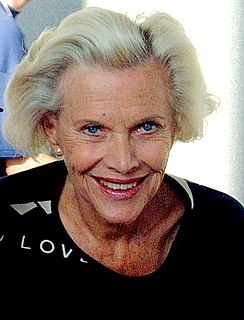A Quote by Bryan Fuller
If you see the blood, then there's an easy association of the violence. The violence that happens when there isn't blood is actually much more subversive and unsettling.
Quote Topics
Related Quotes
My approach to violence is that if it's pertinent, if that's the kind of movie you're making, then it has a purposeI think there's a natural system in your own head about how much violence the scene warrants. It's not an intellectual process, it's an instinctive process. I like to think it's not violence for the sake of violence and in this particular film, it's actually violence for the annihilation of violence.
Before I met No I thought that violence meant shouting and hitting and war and blood. Now I know that there can also be violence in silence and that it’s sometimes invisible to the naked eye. There’s violence in the time that conceals wounds, the relentless succession of days, the impossibility of turning back the clock. Violence is what escapes us. It’s silent and hidden. Violence is what remains inexplicable, what stays forever opaque.
The role that blood plays in Christian iconography is huge - the washing of the blood, the shedding of blood, the blood of the cross, the crucifixion, the violence of that imagery. These are horrific, and yet they are at the center of the Christian faith. There is a place where beauty and terror merge, and it's at the cross.
Domestic violence can be so easy for people to ignore, as it often happens without any witnesses and it is sometimes easier not to get involved. Yet, by publicly speaking out against domestic violence, together we can challenge attitudes towards violence in the home and show that domestic violence is a crime and not merely unacceptable.
I'm so sick of seeing guns in movies, and all this violence; and if there was going to be violence in Pines, I wanted it to actually be narrative violence. I wasn't interested in fetishizing violence in any way of making it feel cool or slow-motion violence. I wanted it to be just violence that affected the story.
The Oriental approach to violence is a much more aesthetic and poetic approach, whereas in the western world, violence is put in because you can't solve the problem. Violence is always the last solution, but unfortunately, in cinema, it's the first solution, because it's easy. And it's often too easy.
I must remind you that starving a child is violence. Suppressing a culture is violence. Neglecting school children is violence. Punishing a mother and her family is violence. Discrimination against a working man is violence. Ghetto housing is violence. Ignoring medical need is violence. Contempt for poverty is violence.
Violence is not merely killing another. It is violence when we use a sharp word, when we make a gesture to brush away a person, when we obey because there is fear. So violence isn't merely organized butchery in the name of God, in the name of society or country. Violence is much more subtle, much deeper, and we are inquiring into the very depths of violence.
Non-violence is a very powerful weapon. Most people don't understand the power of non-violence and tend to be amazed by the whole idea. Those who have been involved in bringing about change and see the difference between violence and non-violence are firmly committed to a lifetime of non-violence, not because it is easy or because it is cowardly, but because it is an effective and very powerful way.
We must realize that violence is not confined to physical violence. Fear is violence, caste discrimination is violence, exploitation of others, however subtle, is violence, segregation is violence, thinking ill of others and condemning others are violence. In order to reduce individual acts of physical violence, we must work to eliminate violence at all levels, mental, verbal, personal, and social, including violence to animals, plants, and all other forms of life.
If mythic violence is lawmaking, divine violence is law-?destroying; if the former sets boundaries, the latter boundlessly destroys them; if mythic violence brings at once guilt and retribution, divine power only expiates; if the former threatens, the latter strikes; if the former is bloody, the latter is lethal without spilling blood
































